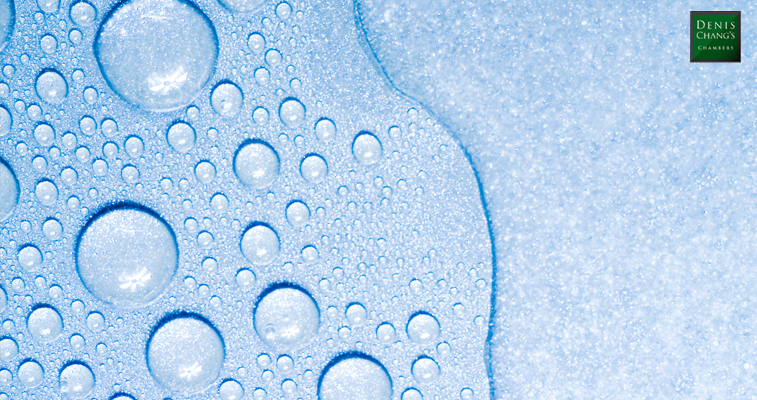Private Nuisance — Court finds a neighbour liable for water seepage despite absence of direct supporting evidence
The Defendants refused entry of the Plaintiff’s expert and staff from government departments into their property at the time the seepage subsisted. Hence, the Plaintiff could only rely on inferences to establish that the water seepage originated from the Defendants’ premises.
Ocean Allied Ltd v Hui Sze Kuen and Another
| Reference: | DCCJ 4732/2014; [2022] HKDC 760 |
| Court: | District Court |
| Before: | Deputy District Judge Tracy Chan |
| Appearance: | Abigail Liu for the successful Plaintiff |
| Date of Decision: | 4 November 2022 |

Overview
The Plaintiff found water seeping into its house and had reasons to believe that the source was the neighbouring house owned by the 1st and 2nd Defendants. Since the Defendants refused entry of the Plaintiff’s expert and staff from government departments into their property at the time the seepage subsisted, the Plaintiff could only rely on inferences to establish that the water seepage originated from the Defendants’ premises.
Despite the lack of direct expert evidence, the Court held that the Plaintiff had proven on the balance of probabilities that the Defendants’ property was the source of the water seepage. Accordingly, the Defendants were found liable for the loss and damage caused to the Plaintiff’s home.
Background Summary
The Plaintiff and the Defendants are the respective owners of two neighbouring houses in a residential estate. The two houses are semi-detached and share a common wall between them.
It is the Plaintiff’s case that water from the Defendants’ water heater area seeped through the common wall into the Plaintiff’s water heater area. The seepage caused damage to the affected area and rental losses.
The Defendants had been uncooperative and had refused the requests by the Plaintiff for the entry of relevant government departments and the Plaintiff’s expert to collect photographic evidence and conduct further inspections at the time of the seepage, imposing additional difficulty on the Plaintiff to gather and collect evidence to support its case.
Despite the above, the Plaintiff instituted legal proceedings against the Defendants for (i) breach of deed of mutual covenant; (ii) negligence; and (iii) nuisance. The Defendants denied that the water seepage occurred at all and that it originated from their property.
The Court’s Decision
The Plaintiff’s case was made even more challenging to argue, given the lack of further opportunities to inspect and obtain evidence from the Defendants’ property. For this reason, the conclusion in the Plaintiff’s expert report could only be reached by inference.
Despite the absence of direct expert evidence, the Court accepted the evidence of the Plaintiff’s expert and the submissions made by Counsel for the Plaintiff on the issue of liability.
The Court held that, on the balance of probabilities, the Defendants are liable for the loss and damage caused by the water seepage to the Plaintiff’s property.
Representation:
Abigail Liu acted for the successful Plaintiff.
| Abigail Liu
Abigail joined Chambers in 2019 and is developing a broad civil and criminal practice, with experience in various areas such as family and matrimonial matters, public law, land, tort, personal injuries, employee compensation, commercial litigation, trusts and probate. Recently, Abigail appeared for the successful 1st to 5th Defendants in Wu Ming Wai Alice v Simon Wu Ming Fat and Others (HCA 329/2021), in which the Court struck out the Plaintiff’s claims in relation to her late father’s properties and for breach of contract against her brother. In Luk Wai Ho v. Fang Yu (DCCJ 4744/2019) [2021] HKDC 1345, Abigail successfully resisted an appeal against the refusal of a summary judgment application for HK$1,000,000 in a dishonoured cheque. She also acted for the successful Defendant in resisting the summary judgment application before Master. She is co-author of Atkin’s Court Forms of Hong Kong, Issue 82, Title II — Compromise & Settlement (LexisNexis, 2021) with Mr Simon Wong. Find out more from Abigail’s profile. |
This article was first published on 5 December 2022.
Disclaimer: This article does not constitute legal advice and seeks to set out the general principles of the law. Detailed advice should therefore be sought from a legal professional relating to the individual merits and facts of a particular case. The photograph which appears in this article is included for decorative purposes only and should not be taken as a depiction of any matter to which the case is related.
